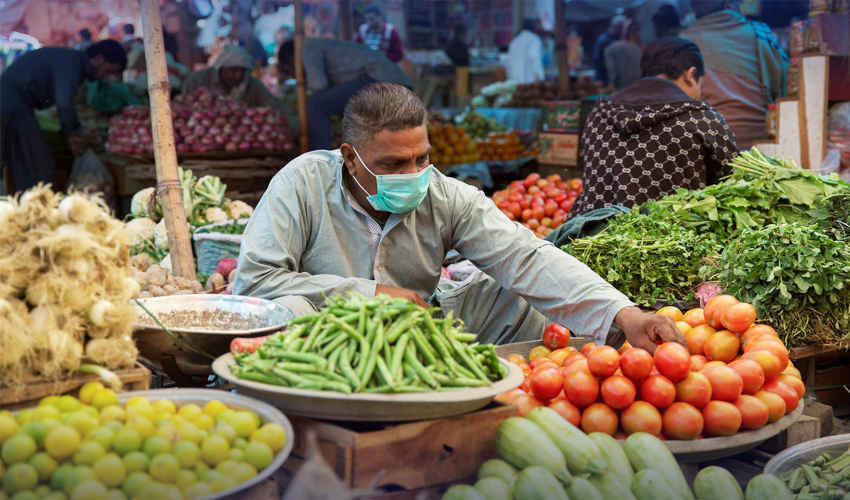The residents of Karachi are feeling the pinch of soaring prices as the cost of vegetables and pulses continues to climb, putting basic food items out of reach for many.
Profiteering is rampant in the city’s markets, exacerbating the already critical situation.
According to market reports, tomatoes are now selling for Rs200 to Rs250 per kilogram, while cauliflower prices have surged to Rs200 per kilogram. The cost of bhindi (okra) has skyrocketed to an astonishing Rs400 per kilogram, further straining household budgets.
Staple vegetables such as potatoes and onions are also seeing significant price hikes, with potatoes being sold at Rs120 per kilogramme and onions ranging between Rs120 and Rs150 per kilogramme.
The situation is equally dire for pulses, a crucial protein source for many. The price of daal maash has reached Rs540 per kg, while daal masoor is being sold for Rs280 per kg, and daal chana is priced at Rs340 per kg.
Also Read: Govt notifies massive hike in power tariff
The steep increase in food prices is attributed to a combination of factors, including supply chain disruptions, increased transportation costs, and market speculation. Local authorities are urged to take immediate action to curb profiteering and provide relief to the people.
At the same time, in a move that will impact households nationwide, the federal government has notified a significant hike in the basic electricity tariff. Effective immediately, the tariff has been increased by Rs7 to Rs12 per unit, depending on usage.
According to a notification from the Power Division, domestic consumers using up to 200 units per month will be exempt from this increase for the next three months. For all other domestic consumers, the basic electricity tariff will rise by Rs7.12 per unit.
With this adjustment, the new basic electricity tariff for domestic consumers will now stand at Rs48.84 per unit. Consumers using between 201 and 300 units will see their tariff increase by Rs7.12, bringing the new rate to Rs34.26 per unit.


























